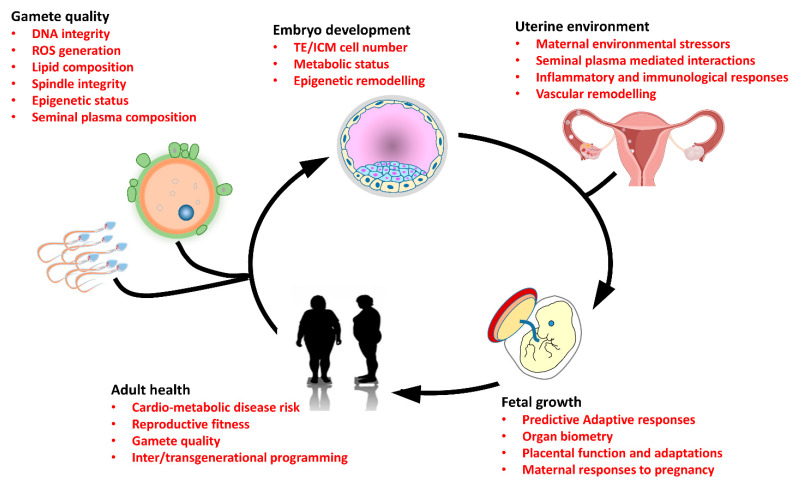Figure 1.
Diagram depicting the central factors linking parental environmental and lifestyle aspects with gamete quality, preimplantation embryo development, fetal growth and adult offspring health. Exposure of parents to poor-quality diet, environmental toxins and pollutants or advancing age can all negatively impact gamete quality, impairing DNA integrity and elevating levels of damaging reactive oxygen species (ROS). Poor-quality gametes at the time of conception subsequently perturb preimplantation embryo development, altering the genome-wide epigenetic remodeling that takes place and affecting cell numbers within the initial embryo lineages, the inner cell mass (ICM) and trophectoderm (TE). Within the uterine environment, factors such as maternal diet, pollution, advancing age and/or stress can directly impact the developmental dynamics and long-term trajectory of the preimplantation embryo through alterations in immune cell populations. In addition, paternal seminal plasma components have also been shown to influence the uterine environment, modulating the proportions of immune cells, as well as inflammatory responses and vascular remodeling, all essential for successful embryo implantation. In late gestation, differential fetal growth can occur through perturbed nutrient provision and dysfunctional placental transport. Here, disproportional fetal growth dynamics result in significant changes in tissue structure and function. These fetal predictive adaptive responses can then predispose the adult offspring to an increased risk of developing a range of non-communicable cardio-metabolic diseases in adult life, which can impact on the quality of their own gametes and the health of subsequent generations.

